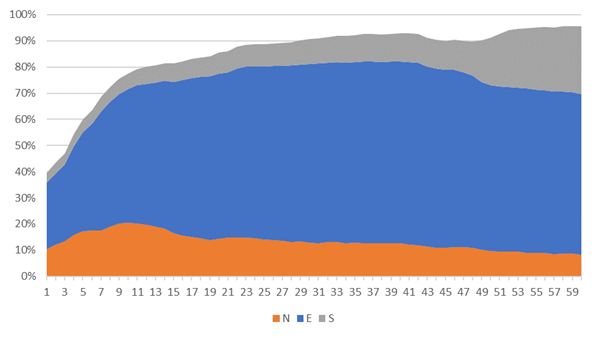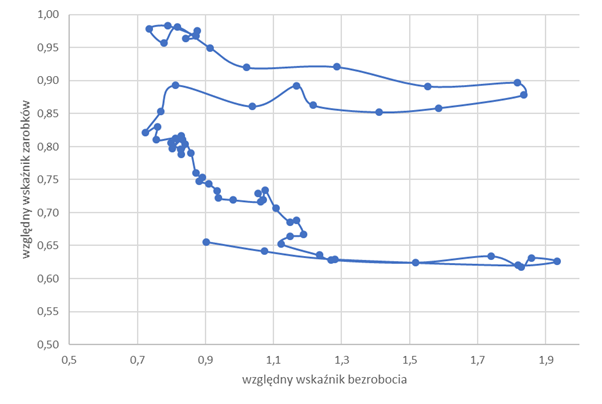
Five years after graduation, graduates of legal studies have usually completed their legal training and established their own law firms. In the last (fifth) year of our graduate tracking we could observe a decrease in the risk of unemployment in this group of graduates compared to the fourth year of tracking, as well as a stabilisation of earnings at a level slightly below the average local salary.
In the fifth year after graduation, lawyers start working independently and set up their law firms once they have completed their legal training and received their professional license. As one might expect, the sharp rise in unemployment among the 2014 law graduates in the fourth year after graduation coincided with the completion of their legal training and apprenticeship (aplikacja). In the following, fifth year of our tracking, the unemployment rate fell to the low level recorded before the final exams. What seems to be clearly shown by the data is the fact that young law graduates register as unemployed in a strategic move to protect themselves economically during the period of job seeking. This strategy is accompanied by a decrease in the percentage of employed law graduates, as well as a steady decrease in the number of law graduates doing part-time jobs. In the fifth year after graduation, 95% of law graduates are employed, with 61% working full-time job and 26% self-employed.
Percentage of employed graduates of long-cycle master's degree programmes in different types of employment – based on the data for the 2014 cohort of law graduates
 Source: data from the ELA system
Source: data from the ELA system
In this group of graduates we can also observe an unusual development of the relative risk of unemployment and earnings. Graduates of law studies initially register with employment offices, then they seem to find employment and their risk of unemployment decreases, which is typical for all other graduates, too. Subsequently, however, we observe another increase in unemployment during the preparation for the legal training exams. Over five years, the earnings of law graduates increase from about 2/3 of the average (local) salary to the level of one average salary – however, we should bear in mind that the value provided by the informants can be underestimated by a large group of self-employed law graduates because they pay social security contributions on a flat-rate basis.
Graphical representation of the relative unemployment index and the relative earnings index for the 2014 cohort of graduates of long-cycle master's degree programmes in law, over the period of 5 years after graduation
 Source: data from the ELA system
Source: data from the ELA system